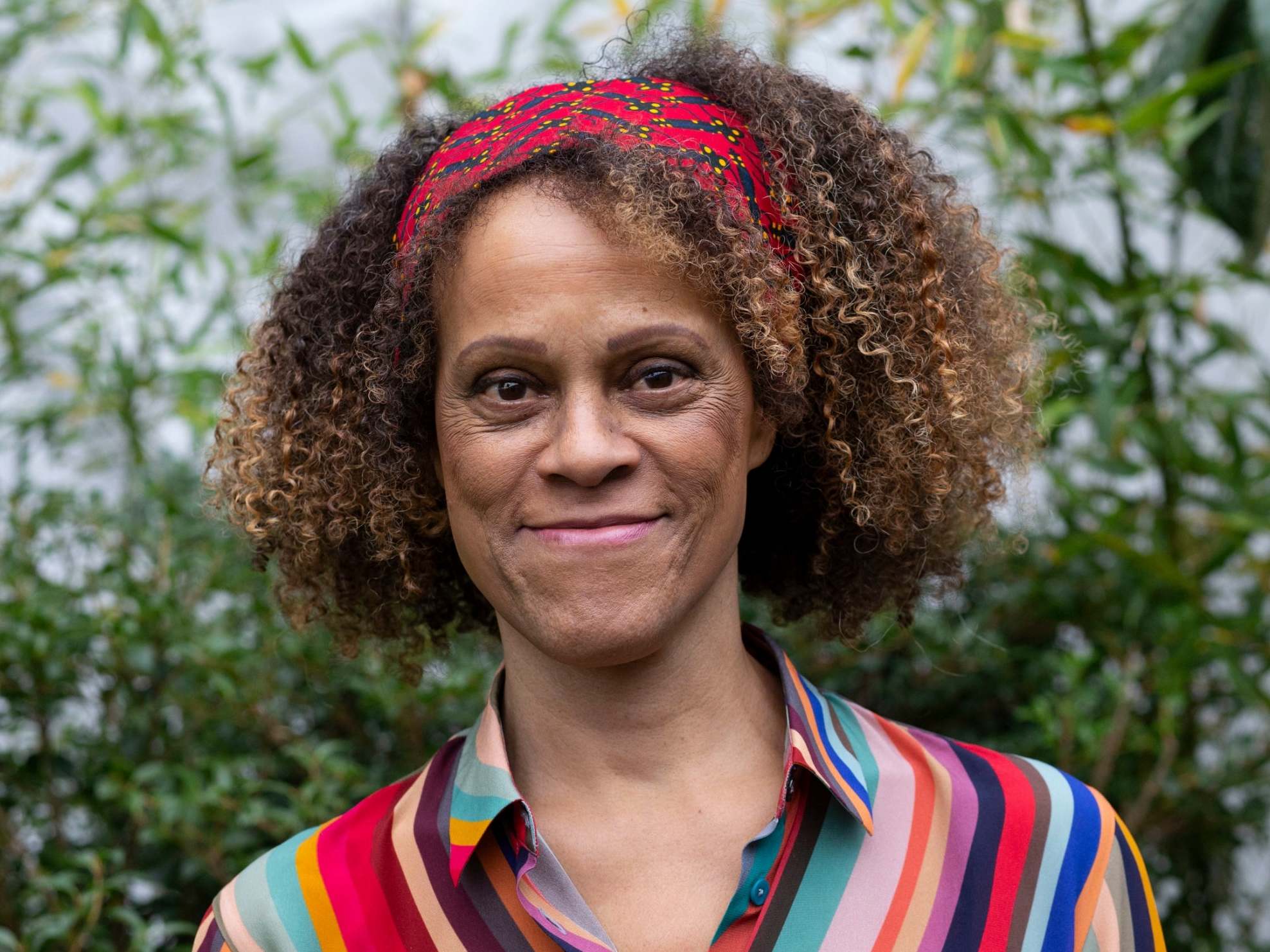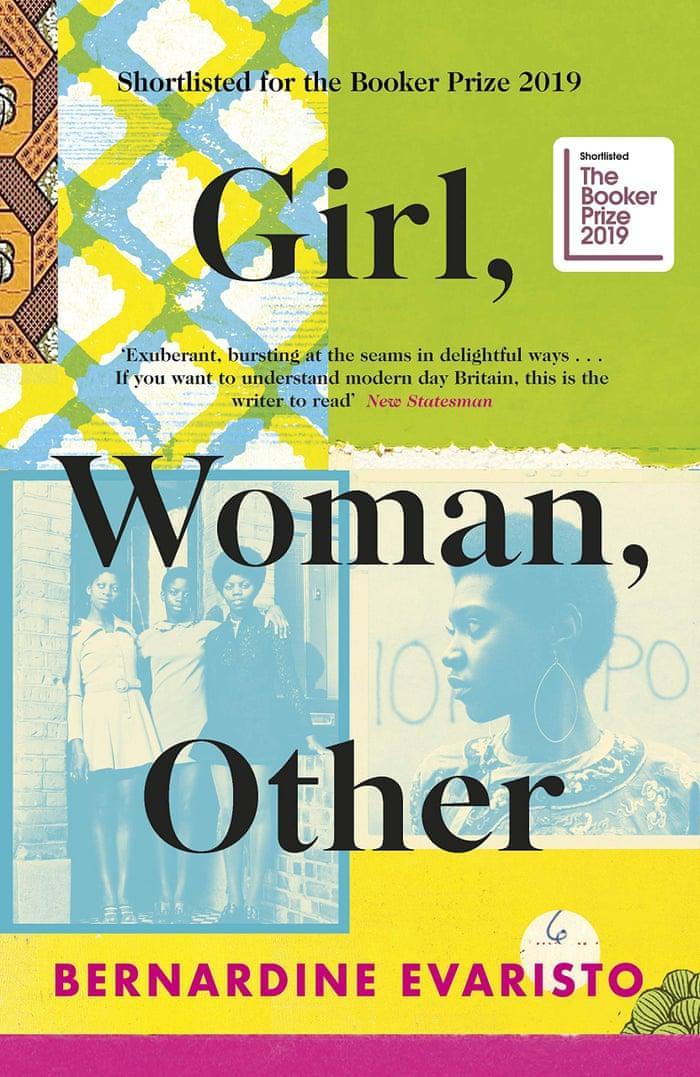Bernardine Evaristo: ‘No single book is the best book in the world’
The Booker Prize-winning author of ‘Girl, Woman, Other’ talks to Concepción de León about activism in her work, writing about older women and why it’s not quite right to say her latest book is about 12 black British women

Your support helps us to tell the story
From reproductive rights to climate change to Big Tech, The Independent is on the ground when the story is developing. Whether it's investigating the financials of Elon Musk's pro-Trump PAC or producing our latest documentary, 'The A Word', which shines a light on the American women fighting for reproductive rights, we know how important it is to parse out the facts from the messaging.
At such a critical moment in US history, we need reporters on the ground. Your donation allows us to keep sending journalists to speak to both sides of the story.
The Independent is trusted by Americans across the entire political spectrum. And unlike many other quality news outlets, we choose not to lock Americans out of our reporting and analysis with paywalls. We believe quality journalism should be available to everyone, paid for by those who can afford it.
Your support makes all the difference.We are all things and everything. You cannot dismiss us, nor can you easily define us,” says the Booker Prize-winning author Bernardine Evaristo, whose book Girl, Woman, Other features a dozen interconnected characters who are mostly black British women but varied in age, class, sexuality and gender.
Evaristo is the first black woman to win the Booker, one of the world’s most prestigious literary awards, though this year’s prize made news for another reason as well: the judges, unable to choose one winner, gave it to her and Margaret Atwood, for The Handmaid’s Tale sequel The Testaments. That prompted a backlash among some of Evaristo’s fans who felt the split decision undermined her historic achievement.
She disagrees. “I don’t actually feel that the impact of the prize has been lessened for me,” she says. “No single book is the best book in the world anyway.”
Evaristo was born in London in 1959 to a white English mother and a Nigerian father. She initially studied acting but grew frustrated with the dearth of plays by or about black women. “It made sense to start writing,” she says.
A few days after the prize was announced, her voice worn down from nonstop interviews, she talks about experimentation and activism in her work, writing complicated older women and why it’s not quite right to say Girl, Woman, Other is a book about 12 black British women.

Can you talk to me about why you wrote this book and where the idea came from?
I just had this idea that I would put as many women as I could into a single book and somehow connect it all through x degrees of separation and see what happened with that. In a sense, you could almost call it an activist novel. I don’t feel, as a black British woman writer, that I would want to write a book just because I want to explore something about the human race. My mission is to write about the African diaspora. That’s what I’ve done with all my books. And so focusing on 12 black British women was my way of addressing our invisibility and also exploring our heterogeneity. There are probably about 800,000 black British women, and we’re all different.
How did you approach writing a novel with so many characters while making sure they were fully fleshed out?
It’s an experimental novel where each woman has her own space, and that’s what’s so important. I think the form is very important because they’re not short stories, it is a single novel. Everybody is interconnected and interrelated. But you go through the sorts of consciousness and lives of all of these different women as you read them. You encounter one, then you encounter their child or their mother or their friend, and then you encounter maybe a schoolteacher and then her mother and then her work friend.
The book was written in poetry and prose but also seemed to have some elements of playwriting. What were your influences in terms of format and structure?
I might track back, in fact, to For Colored Girls Who Have Considered Suicide/When the Rainbow Is Enuf, by Ntozake Shange. I think I might have seen that in 1979. She wrote about seven black women and their lives.
I found For Colored Girls very inspiring as a young woman in Britain. Seven black women onstage – amazing. That had never happened before.
Why does the number of women matter? Why did it feel important to have nearly a dozen women in Girl, Woman, Other?
Black British history is very different to American history. We do go back 2,000 years to the Romans, which is something I wrote about in one of my books, but from the middle of the 20th century, we saw the big wave of migration that began. My father migrated from Nigeria in 1949, and still today we get waves of migration from different countries. We come from all over Africa, we come from all over the Caribbean. We’re kind of recent in terms of our own personal histories, although not in terms of black presence in this country. I wanted to explore that. I wanted to explore different sexualities. Women are on the queer spectrum, some of them. I wanted to explore class. The idea of, you’re born into one class in this very class-obsessed society that I live in, and then you move out of it. And also ages – the youngest is 19, the oldest is 93, and there’s every generation in between.
All of these things I was able to explore to some degree through 12 characters. I would not have been able to do that with two characters.
To your point about wanting to present a heterogeneous group of women, I wonder to what extent the women presented in the novel are a reflection of the variety of women in your life?
Amma is loosely based on my younger self. Dominique is similar to the women I mixed with, theatre women in the Eighties. Yazz is a version of one of my goddaughters. I know teachers, my mother was a teacher. I know non-binary people. So I am respectively drawing on the people I know, but I’m also drawing on everyone I’ve ever known. Because we create characters from how we absorb the people in our lives and the people we observe and the people we hear about.
I really like being around young people. I like the fact that they’re seeing the world differently, and that especially young black feminists – this is a world full of possibility for them. I like to be connected to every generation. I don’t think I could have written the young women in the novel in the way that I did if I didn’t have connections with young people.
Quite a few of the women in the book are middle-aged. Why was age diversity important for you?
Because older women are hardly ever written about in fiction, let alone older black women, even when the writers are older women. It’s like we are fixated with youth, yet in my opinion older women are so interesting. Have lived long lives. Have so much to say and to offer. I wanted my older women to have agency, to be complicated. Through writing their imperfections I made them very real. All of those things that they get up to, those secrets that they keep and so on, is really about me strengthening them as characters. I don’t want any character to come over as predictable or as a stereotype – the earth mother, the suffering but strong black woman. People may see bits of that, but I don’t think you can define any of those women in any simple way. They are made up of many things. They have multiple identities. We are multidimensional as humans.
I wanted to clarify one last thing: the book has been described, sometimes by you, as being about 12 black women. But there’s a non-binary character.
It’s just so easy to say 12 black British women, because it just slips off the tongue. I sometimes might write it as 12 black British women with an “x”. So W-O-M-X-N, which is kind of women of colour inclusive and trans-inclusive, so then it embraces all the women. Other people as a shorthand say 12 black British women, but that’s not the truth.
© New York Times
Girl, Woman, Other published by Hamish Hamilton is out now
Join our commenting forum
Join thought-provoking conversations, follow other Independent readers and see their replies
Comments